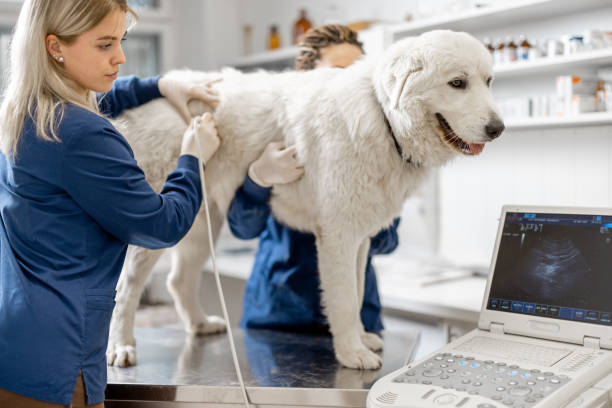Curriculum and Training
Vet Assistant Programs in Nova Scotia focus on a comprehensive curriculum that covers a wide range of topics essential for effective veterinary support.
For instance, students learn about animal anatomy, physiology, veterinary terminology, and pharmacology.
Additionally, these programs emphasize practical skills, such as handling and restraining animals, administering medications, and managing office and clinical operations.
Hence, by blending theoretical knowledge with hands-on training, Vet Assistant Programs in Nova Scotia thoroughly prepare graduates for the demands of the job.
Certification and Accreditation
Graduates often pursue certification to enhance their employability. Although certification is not mandatory, it can significantly boost job prospects and potential earnings for vet assistants.
Moreover, accredited programs meet the standards set by provincial veterinary boards, providing assurance of quality education and adherence to current veterinary practices.
Work Placement Opportunities
Many programs include work placements as part of the curriculum. These placements are critical because they offer students real-world experience in veterinary settings.
Thus, students have the opportunity to apply what they have learned in classrooms in actual veterinary practices. This exposure is invaluable for building both confidence and competence.
Career Opportunities
Graduates find employment in various settings, such as veterinary clinics, animal hospitals, animal shelters, and zoos.
These roles not only enable vet assistants to provide critical support to veterinarians, but they also allow them to make a meaningful impact on animal welfare and client education.
Furthermore, the comprehensive training from these programs equips graduates with the skills to handle diverse responsibilities, ranging from administrative tasks to direct animal care.
Continuing Education and Advancement
For those aiming to advance their careers, Vet Assistant Programs in Nova Scotia offer a valuable stepping stone.
Graduates can pursue additional training to become veterinary technicians or technologists, roles that carry greater responsibilities and require more advanced knowledge.
Moreover, there are numerous continuing education opportunities available, with several programs offering pathways to further certifications and specializations.
Challenges and Rewards
Working as a vet assistant is both challenging and rewarding. Graduates of Vet Assistant Programs in Nova Scotia must navigate a range of emotions and situations, from the joy of helping animals recover to the challenges of dealing with distressed pet owners.
Importantly, the role demands not only technical skills but also a high level of emotional intelligence and resilience.
Community Impact
The impact of Vet Assistant Programs in Nova Scotia extends beyond the individual graduates. These programs provide skilled support staff to veterinary practices, thus enhancing the overall quality of animal healthcare in the region.
Vet assistants are vital to the daily operations of these practices, ensuring that animals receive the best possible care.
Conclusion
Vet Assistant Programs are essential for anyone looking to enter the veterinary field. These programs equip students for a rewarding career where they can significantly impact the lives of animals and their owners.
With comprehensive training and real-world experience, coupled with opportunities for career advancement, graduates of Vet Assistant Programs in Nova Scotia are well-prepared to meet the challenges and enjoy the rewards of this fulfilling profession.
As the demand for qualified veterinary assistants grows, these programs will continue to play a key role in addressing the healthcare needs of animals across Nova Scotia.




